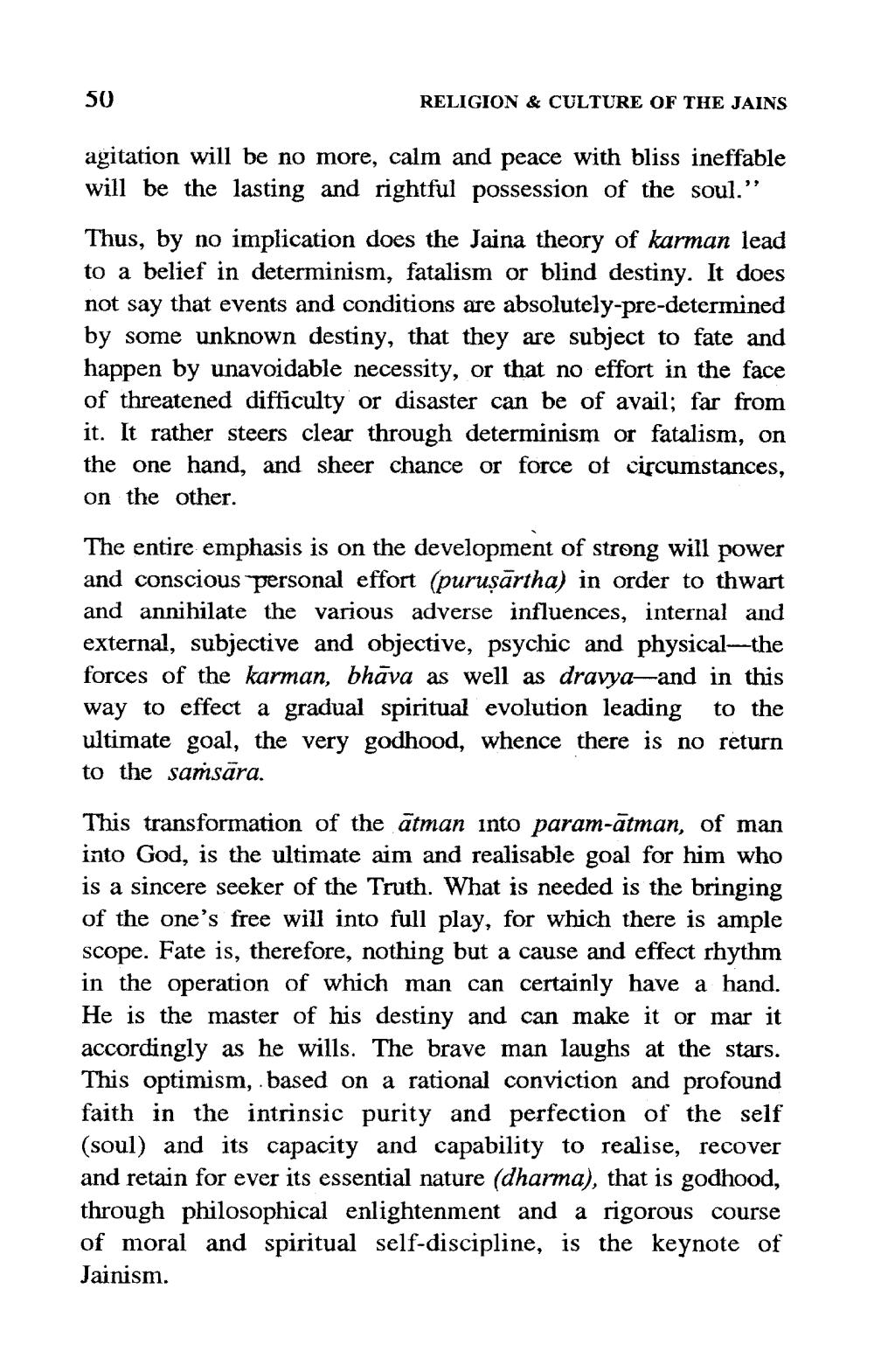________________
50
RELIGION & CULTURE OF THE JAINS
agitation will be no more, calm and peace with bliss ineffable will be the lasting and rightful possession of the soul.” Thus, by no implication does the Jaina theory of karman lead to a belief in determinism, fatalism or blind destiny. It does not say that events and conditions are absolutely-pre-determined by some unknown destiny, that they are subject to fate and happen by unavoidable necessity, or that no effort in the face of threatened difficulty or disaster can be of avail; far from it. It rather steers clear through determinism or fatalism, on the one hand, and sheer chance or force of circumstances, on the other.
The entire emphasis is on the development of strong will power and conscious personal effort (puruṣārtha) in order to thwart and annihilate the various adverse influences, internal and external, subjective and objective, psychic and physicalthe forces of the karman, bhāva as well as dravya—and in this way to effect a gradual spiritual evolution leading to the ultimate goal, the very godhood, whence there is no return to the samsāra.
This transformation of the ātman into param-ātman, of man into God, is the ultimate aim and realisable goal for him who is a sincere seeker of the Truth. What is needed is the bringing of the one's free will into full play, for which there is ample scope. Fate is, therefore, nothing but a cause and effect rhythm in the operation of which man can certainly have a hand. He is the master of his destiny and can make it or mar it accordingly as he wills. The brave man laughs at the stars. This optimism, based on a rational conviction and profound faith in the intrinsic purity and perfection of the self (soul) and its capacity and capability to realise, recover and retain for ever its essential nature (dharma), that is godhood, through philosophical enlightenment and a rigorous course of moral and spiritual self-discipline, is the keynote of Jainism.




